


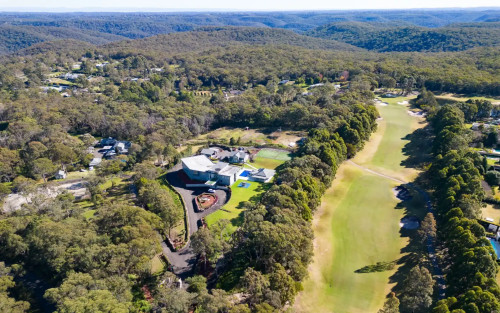
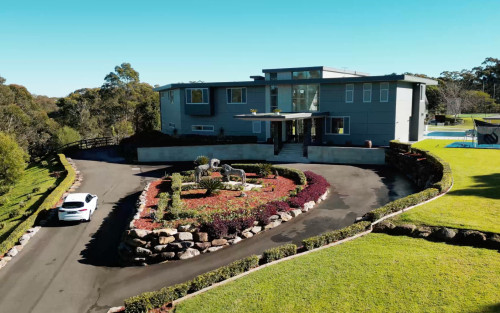




Tranquilo Wellness
Verified Center
This provider's information has been quality-checked by Recovery.com's Research Team for accuracy and completeness, including center verification through appropriate third-party organizations.
Treatment Focus
This center treats substance use disorders and mental health conditions. You'll receive individualized care catered to your unique situation and diagnosis, learn practical skills for recovery, and make new connections in a restorative environment.
Primary Level of Care
Offering intensive care with 24/7 monitoring, residential treatment is typically 30 days and can cover multiple levels of care. Length can range from 14 to 90 days typically.
Treatment Focus
This center treats substance use disorders and mental health conditions. You'll receive individualized care catered to your unique situation and diagnosis, learn practical skills for recovery, and make new connections in a restorative environment.
Primary Level of Care
Offering intensive care with 24/7 monitoring, residential treatment is typically 30 days and can cover multiple levels of care. Length can range from 14 to 90 days typically.
Private Pay
You pay directly for treatment out of pocket. This approach can offer enhanced privacy and flexibility, without involving insurance. Exact costs vary based on program and length of stay. Contact the center for specific details.
Tranquilo Wellness
Tranquilo Wellness
About Tranquilo Wellness
Located by the northern beaches in Sydney, Tranquilo Wellness is a private residential retreat that provides personalised treatment for psychological and lifestyle issues. Their team of experienced professionals provide a safe, welcoming environment with 24-hour care so clients can focus on improving psychological and physical well-being. Clients receive bespoke treatment programs created by industry-leading clinical experts who are passionate about achieving effective and lasting results. Tranquilo’s luxurious environment provides breathtaking facilities, access to an exclusive members-only golf course, and evening activities to enhance the recovery experience.
Premium Approach and Treatments
Tranquilo recognises each person’s recovery looks different, so their approach crafts highly individualised care with a blend of treatment modalities, centered on evidence-based therapeutic methods combined with holistic health practices. Their team treats substance use disorders, addresses the unique needs of executives seeking care for burnout, and addresses behavioural addictions like gambling and eating disorders. If they determine that a client with an eating disorder would benefit more from a specialised program, Tranquilo can refer them to another facility better equipped to meet their specific needs. Tranquilo is home to a team of industry-leading clinical experts who provide 24-hour care at the luxury facility. With a deep understanding of treatments, Tranquilo guides clients on the path to recovery through a supervised program designed to improve physical and psychological well-being.
Professional and Confidential
Tranquilo prioritises the confidentiality and privacy of each client, with thorough admission procedures in place allowing guests to connect with their services on a minimal or low-profile basis. They strive to make each client feel safe and supported by a team of professionals, therapists, and practitioners. Located in the iconic Northern Beaches in Sydney, Tranquilo is a local luxury destination for recovery, relaxation and wellness. Only 35 minutes from the Sydney central business district, Tranquilo rests in a secluded location. The resort-style living enables clients to focus on achieving the ultimate well-being experience.
Exclusive Retreat and Natural Setting
Tranquilo offers plentiful alternative healing modalities in their exclusive, lush center. Clients enjoy yoga, acupuncture, aromatherapy, and more while immersed in a lavish environment. The 5-star, gated facility is tucked away on a stunning campus with a tennis court, gardens, spa, theater, fitness center, golf course, and walking trails. There are 5 suites with spacious bathrooms, closets, and balconies. Recovery meets luxury in an unrivaled retreat experience, with all-inclusive pricing that covers every aspect of the stay, from therapies and activities to gourmet dining and accommodation. This comprehensive fee structure allows clients to focus entirely on their recovery without worrying about additional costs.

Highlights from the Center
Highlights
These highlights are provided by and paid for by the center.
1-on-1 Counseling
Therapeutic Location
Bespoke With Exclusive Staff
Wellness Emphasis
Center Overview
Treatment Focus
This center treats substance use disorders and mental health conditions. You'll receive individualized care catered to your unique situation and diagnosis, learn practical skills for recovery, and make new connections in a restorative environment.

Tranquilo Wellness
Pricing and Program Length
Estimated Center Costs
The cost listed here ($20,000 AUD/ 7 days), is an estimate of program cost. Center price can vary based on program and length of stay. Contact the center for more information. Recovery.com strives for price transparency so you can make an informed decision.




Recovery.com Verified Listing
Recovery.com verified that the name, location, contact information and license to operate for this treatment provider are valid and up-to-date.

Registered
Recovery.com is an independent, third-party mental health resource. Verification does not imply endorsement and does not guarantee the quality of treatment services.
Meet Your Care Team
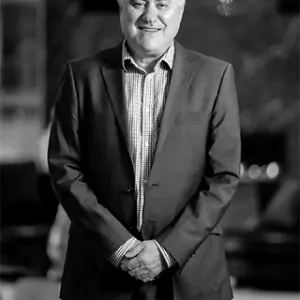
Dr. Mark Hardy
Medical Director
Member Medical Advisory Board at Novel Health Co and the Opioid Pharmacotherapy Subcommittee for NSW Health

Jessie Booth
Psychologist
Registered with the Psychology Board of Australia, Member Australian Psychological Society, B.S. Psychology, EMDR Advanced/Level 2

Jim Finanne
Substance Use Educator

Zoe Brain
Certified Practicing Dietician

Missy Mitterhuemer
Clinical Nutritionist & Chef
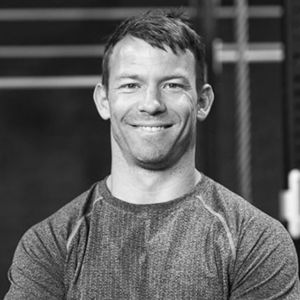
Matt Forwood
Personal Trainer

Eva Pilwat
Yoga Instructor

Kimberley Forwood
Pilates Instructor

Kyla Mawson
Breathwork Practitioner

Kirsten Severino
Kinesiologist

Graham Carruthers
Acupuncturist

Mike Buchanan
Masseuse
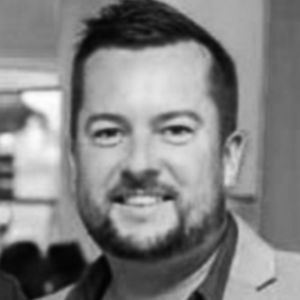
Ben Doney
PGA Golf Pro
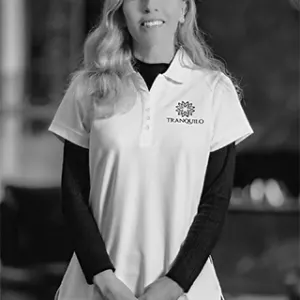
Caroline Robertson
Head of Operations
Dip. of Naturopathy, Dip. of Nutrition, Dip. of Homoeopathy, Dip. of Botanical Medicine, Dip. of Remedial Massage, Cert. of Ayurvedic Medicine, Certified First Aid Trainer, Nature Care College Lecturer, Level 2 Reiki
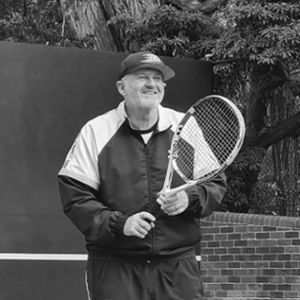
Alan Stopford
Tennis Instructor
Your Care Options
Specializations
Alcohol
Using alcohol as a coping mechanism, or drinking excessively throughout the week, signals an alcohol use disorder.
Burnout
Burnout entails mental and physical exhaustion, and leads to a severe lack of fulfillment. This condition is often caused by overwork.
Co-Occurring Disorders
A person with multiple mental health diagnoses, such as addiction and depression, has co-occurring disorders also called dual diagnosis.
Cocaine
Cocaine is a stimulant with euphoric effects. Agitation, muscle ticks, psychosis, and heart issues are common symptoms of cocaine abuse.
Drug Addiction
Drug addiction is the excessive and repetitive use of substances, despite harmful consequences to a person's life, health, and relationships.
Executives
Executive treatment programs typically directly support the needs of people who manage businesses and may provide flexible schedules and office space to allow work during treatment.
Professionals
Busy, high-ranking professionals get the personalized treatment they need with greater accommodations for work, privacy, and outside communication.
Stress
Stress is a natural reaction to challenges, and it can even help you adapt. However, chronic stress can cause physical and mental health issues.
Who We Treat
Older Adults
Addiction and mental health treatment caters to adults 55+ and the age-specific challenges that can come with recovery, wellness, and overall happiness.
Executives
Executive treatment programs typically directly support the needs of people who manage businesses and may provide flexible schedules and office space to allow work during treatment.
LGBTQ+
Addiction and mental illnesses in the LGBTQ+ community must be treated with an affirming, safe, and relevant approach, which many centers provide.
Men and Women
Men and women attend treatment for addiction in a co-ed setting, going to therapy groups together to share experiences, struggles, and successes.
Midlife Adults
For adults ages 40+, treatment shifts to focus on the unique challenges, blocks, and risk factors of their age group, and unites peers in a similar community.
Pregnant Women
Addiction and mental health treatment meets the clinical and psychological needs of pregnant women, ensuring they receive optimal care in all areas.
Professionals
Busy, high-ranking professionals get the personalized treatment they need with greater accommodations for work, privacy, and outside communication.
Treatment Services
Detox
Detox fully and safely removes toxic substances from the body, allowing the next steps in treatment to begin with a clean slate.
Private Therapy
This is an individual therapy that's often available at private therapy clinics. Clients may be able to choose a therapist who best fits their unique needs.
Outpatient
During outpatient rehab, patients attend a structured treatment program while continuing to live at home.
Residential
In a residential rehab program, patients live onsite, with access to daily treatment and 24-hour care. An average stay is 30-90 days.
Retreat
These curated experiences promote physical, mental, and spiritual well-being, and provide a break from the busy pace of daily life.
Approaches
Evidence-Based
A combination of scientifically rooted therapies and treatments make up evidence-based care, defined by their measured and proven results.
Individual Treatment
Individual care meets the needs of each patient, using personalized treatment to provide them the most relevant care and greatest chance of success.
Personalized Treatment
The specific needs, histories, and conditions of individual patients receive personalized, highly relevant care throughout their recovery journey.
Therapies
1-on-1 Counseling
Patient and therapist meet 1-on-1 to work through difficult emotions and behavioral challenges in a personal, private setting.
Meditation & Mindfulness
A practiced state of mind that brings patients to the present. It allows them to become fully aware of themselves, their feelings, and the present moment.
Trauma-Specific Therapy
This form of talk therapy addresses any childhood trauma at the root of a patient's current diagnosis.
Rational Emotive Behavior Therapy
A type of cognitive therapy that identifies negative self-defeating thoughts and behaviors, rewriting beliefs to be positive, empowering, and present.
Attachment-Based Family Therapy
ABFT is a trauma-focused therapy that teaches you to form healthy relationships by rebuilding trust and healing attachment issues formed in childhood.
Art Therapy
Visual art invites patients to examine the emotions within their work, focusing on the process of creativity and its gentle therapeutic power.
Conditions We Treat
Pornography Addiction
A person with a porn addiction is emotionally dependent on pornography to the point that it interferes with their daily life and relationships.
Schizophrenia
Schizophrenia is a serious mental health condition that causes hallucinations, delusions, and disordered thinking.
Grief and Loss
Grief is a natural reaction to loss, but severe grief can interfere with your ability to function. You can get treatment for this condition.
Personality Disorders
Personality disorders destabilize the way a person thinks, feels, and behaves. If untreated, they can undermine relationships and lead to severe distress.
Anxiety
Anxiety is a common mental health condition that can include excessive worry, panic attacks, physical tension, and increased blood pressure.
Bipolar
This mental health condition is characterized by extreme mood swings between depression, mania, and remission.
Burnout
Burnout entails mental and physical exhaustion, and leads to a severe lack of fulfillment. This condition is often caused by overwork.
Depression
Symptoms of depression may include fatigue, a sense of numbness, and loss of interest in activities. This condition can range from mild to severe.
Substances We Treat
Alcohol
Using alcohol as a coping mechanism, or drinking excessively throughout the week, signals an alcohol use disorder.
Chronic Relapse
Consistent relapse occurs repeatedly, after partial recovery from addiction. This condition requires long-term treatment.
Co-Occurring Disorders
A person with multiple mental health diagnoses, such as addiction and depression, has co-occurring disorders also called dual diagnosis.
Cocaine
Cocaine is a stimulant with euphoric effects. Agitation, muscle ticks, psychosis, and heart issues are common symptoms of cocaine abuse.
Drug Addiction
Drug addiction is the excessive and repetitive use of substances, despite harmful consequences to a person's life, health, and relationships.
Ecstasy
Ecstasy is a stimulant that causes intense euphoria and heightened awareness. Abuse of this drug can trigger depression, insomnia, and memory problems.
Heroin
Heroin is a highly addictive and illegal opioid. It can cause insomnia, collapsed veins, heart issues, and additional mental health issues.
Psychedelics
Hallucinogenic drugs—like LSD—cause euphoria and increased sensory experiences. When abused, they can lead to depression and psychosis.
Languages
Aftercare
Care Designed for Your Needs
Personal Amenities
Amenities
Special Considerations
Couples program
Using gentle clinical care, therapists guide patients and their partner through guided sessions to address issues and work towards lasting solutions.
Executive Program
Addiction and mental health treatment for executives typically involves high discretion, greater technology access, and more private, 1-on-1 care.
Flexible technology policies
Centers with flexible technology policies allow professionals to stay in touch with work and give patients a greater sense of connection and normalcy.
Healthy Meals are provided
Great food meets great treatment, with providers serving healthy meals to restore nutrition, wellbeing, and health.
Activities
Yoga
Yoga is both a physical and spiritual practice. It includes a flow of movement, breathing techniques, and meditation.
Off-Site Activities
Off-Site Amenities
Learn More About the Center
Serene Location
Discover the perfect setting to enhance holistic health and well-being.
Comprehensive Addiction Recovery Program
Explore how personalised care and holistic therapies can create lasting recovery for addiction.
Tailored Treatment for Executives
Uncover how Tranquilo transforms executive burnout into an opportunity for personal growth.
Inviting Accommodations and Transparent Pricing
Discover comfort and peace of mind while healing.
What people are saying
Treatment
5.0
Accommodations
5.0
Food & Nutrition
4.8
Value
4.8
Pros
- Supportive Aftercare (3)
- Trustworthy (2)
- Family Program (2)
- Treated My Loved One With Respect (2)
RY
Treatment in 2024 • (45 days) • Reviewed 10/12/24
Loved One of a Former Client
•Sydney, NSW
Anonymous
Reviewed 09/26/24
Referring Professional
•Psychotherapist
AM
Treatment in 2024 • (30 days) • Reviewed 09/25/24
Loved One of a Former Client
•Sydney





